
How to make an impact in under 30 days
Jana Jansen van Vuuren
Posted: February 6, 2020
Earth Hour on 28 March, is all about creating awareness of how unnecessary energy consumption contributes to global warming.
But energy management isn’t the only impact humans have on the planet and that is why we want to show you how to make an impact by doing more to preserve the environment.
We have put together a list of actions you can take to minimise your impact and accelerate global awareness in under 30 days, from Earth Hour on 28 March until Earth Day on 22 April.
Energy awareness week

Original photo: “Light bulb light” by jniittymaa0 is licenced under CC BY-SA 2.0
One of the main causes of climate change is the greenhouse gases emitted by human activities like energy production, manufacturing and transportation. In fact, greenhouse gases due to human activities have increased by 37% between 1990 and 2015.
Use the following daily guide to dramatically decrease your own carbon footprint.
28 March – Commemorate Earth Hour. Some of the most common causes of greenhouse gas emissions are electricity and heat generation. Turn off the lights and if you have friends or family over, light some candles for dinner.
29 March – Plant a tree. Together, soil, oceans and forests, act as “carbon sinks” that suck this harmful substance out of our atmosphere. Plant a tree native to your region to reduce carbon in your area.
If you are interested in studying how trees increase our planet’s resilience to climate change why not join one of our environmental conservation projects around the world, like those in Thailand and Seychelles, where staff and volunteers study mangroves.
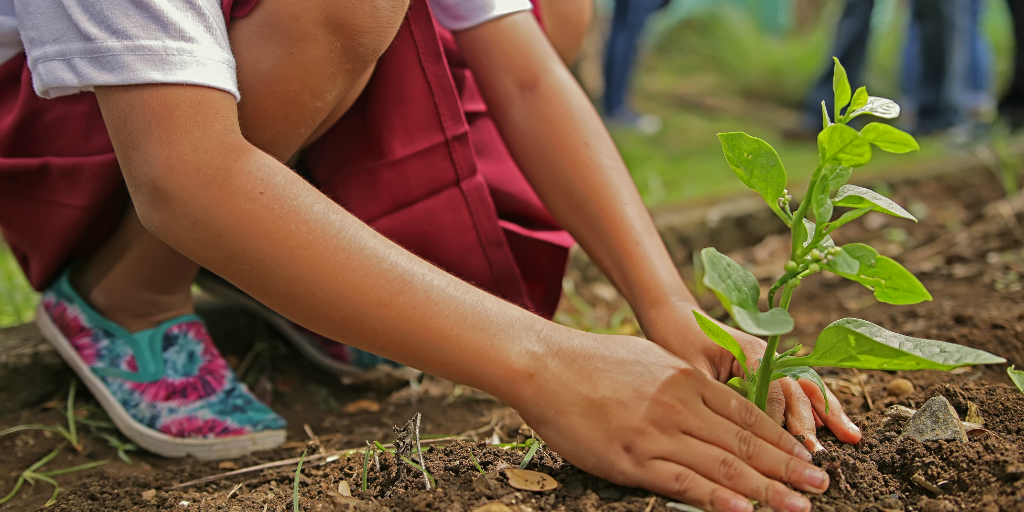
Original photo: “Planting environment” by artisano is licenced under CC BY-SA 2.0
30 March – Switch off. Outlets and appliances that are not being used waste energy. Be sure to turn off all plugs and lights when you leave a room. Turn off any appliances that are not being used like computer monitors and TVs. You can also turn off power outlets at home, at school and at work.
31 March – Adjust your indoor climate. Aircons and water heating accounts for a significant amount of energy expenditure. Set your aircon as close to outside temperature as possible to save energy.
Wash dishes and clothes in hot water when you want to sterilise the items, otherwise use lukewarm water.
1 April – Replace your light bulbs. Energy-efficient lights are not only good for the environment, but also for your electricity bills. Get yourself some compact fluorescent bulbs to replace the lights in your room or home.
2 April – Speak to your building manager. Is your apartment building, school or office wasting electricity? Speak to the building manager about installing energy-efficient lighting and implementing policies about conservative lighting, outlet, appliance and aircon usage.
Further reading: What are the world’s biggest problems and how can I help?
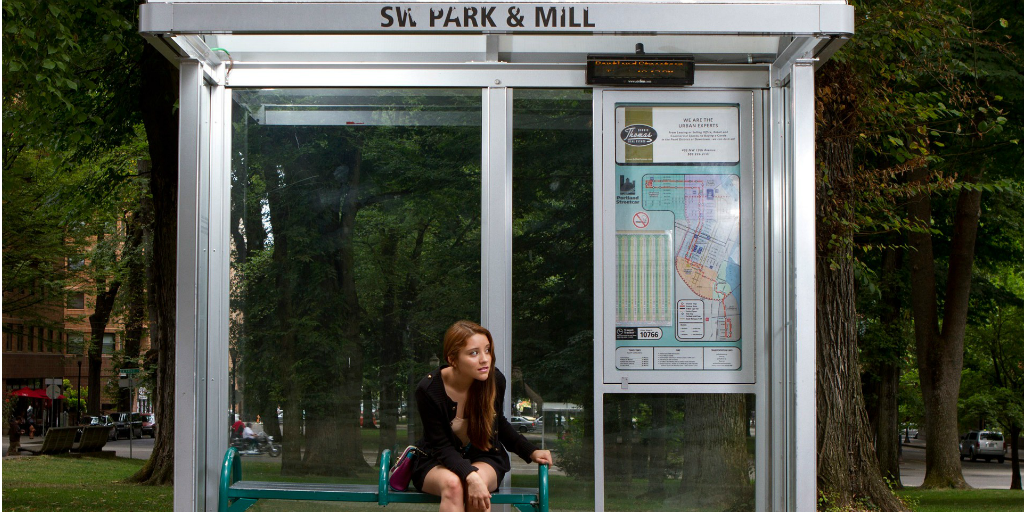
Original photo: “Bus stop waiting bus” by PublicDomainPictures is licenced under CC BY-SA 2.0
3 April – Make this your sustainable transport day. Transport is the third most common cause of greenhouse gas emissions. If you have safe public transportation options, use them.
If you know someone at school or at work that lives close to your area, ask if you can carpool. If you live close enough to work, think about walking or cycling.
Plastic prevention week
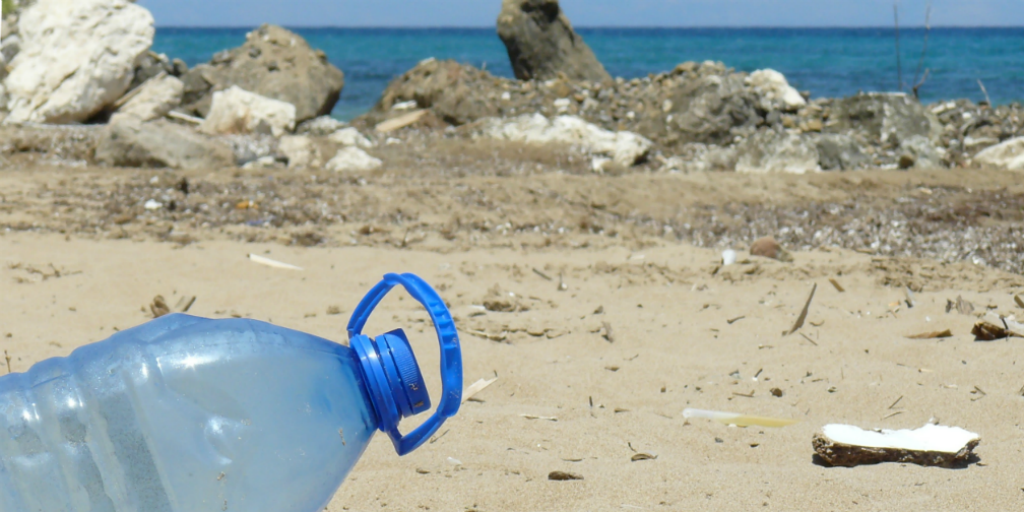
Original photo: “Plastic Bottle Bottle” by kakuko is licenced under CC BY-SA 2.0
Over 8 million tons of plastic end up in our oceans every year. Plastic is not biodegradable and simply breaks down into smaller pieces.
This is harmful to wildlife that mistake plastic for food. Plastic can also pollute organic environments and affect human health.
4 April – Get your plastic-free kit ready. More than 50% of all plastics are only used once and then thrown away. The first step is to reduce your usage of single-use plastic by using reusable containers instead.
These include things like reusable takeaway cups, water bottles, straws, knives, forks, spoons, cloth napkins, shopping bags and bread bags. Use these throughout the week.
If you already have plastic storage containers, keep them, but if you don’t, buy yourself glass or metal takeaway containers. While glass takes on average a million years to decompose, it is more easily recyclable than plastic. Metal can be taken to scrap yards where it will also be recycled.
5 April – Join a plastic clean up. Join a local plastic cleanup, whether it is at a public area, street, park or beach. You’ll help clear plastic pollution and, as an added benefit, you’ll make some friends along the way.
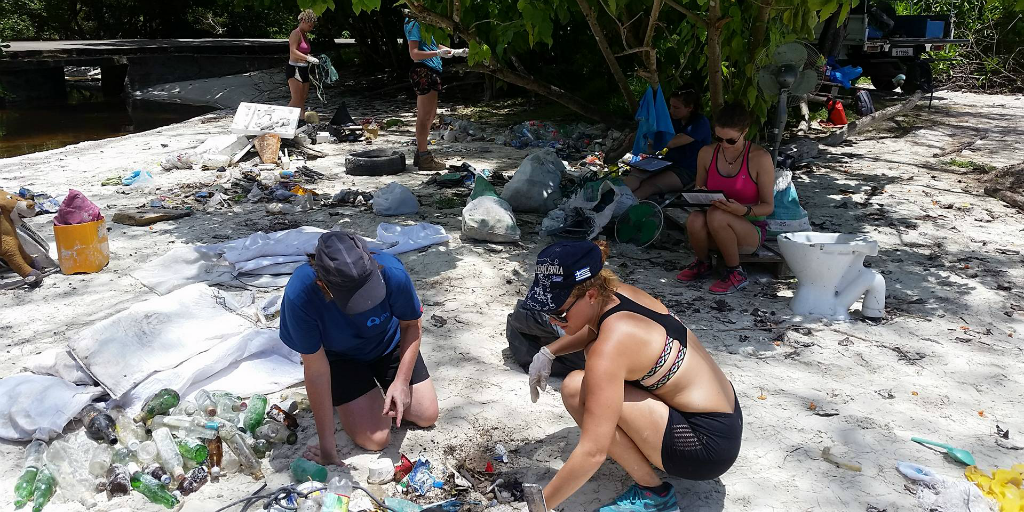
There are many events organised around the world and they can easily be found on search engines, social platforms or by word of mouth. You can also join one of our marine and coastal conservation programs around the world, in Mexico, Seychelles, Fiji and Thailand to participate in regular beach and ocean floor cleanups.
6 April – Recycle. Even when you try to live plastic-free, there will be times when you need to use plastic. See how items can be recycled by checking the packaging for a number.
The numbers are called resin identification codes. Each code represents the type of plastic products are made from them, their properties, and valuable uses after recycling.
You might find that most sweets and chip packaging are non-recyclable. So what do you do with non-recyclable plastics?
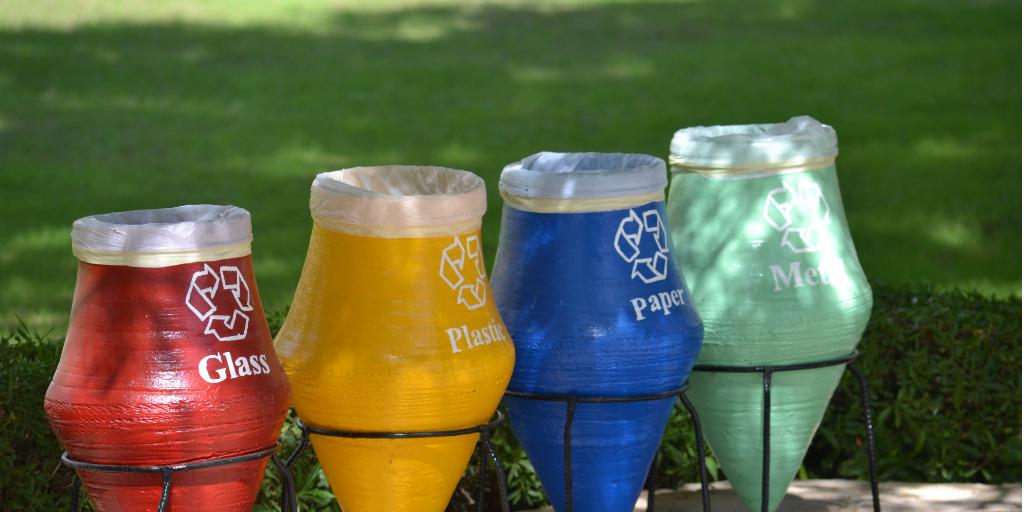
Original photo: “Recycle Egypt” by imordaf is licenced under CC BY-SA 2.0
There are many innovations in this area. Try one we are trying ourselves called the eco-brick project.
7 April – Spread awareness about hidden plastics. Many exfoliators contain tiny little pieces of plastic that get into the sea and harm coral, fish and the chemistry of our oceans.
Glitter and chewing gum do the same. Let your friends and family know not to use these items and if you see one in a shop, tell the shop owner about it.
Further reading: Why volunteer?
8 April – Hold brands accountable. By now you will probably have realised that some items you use to buy often are not friendly to the environment.
Tell brands the reasons you have stopped buying from them on their social platforms. The more they know about your reasons, the more likely they will be to come up with innovative and eco-friendly solutions.
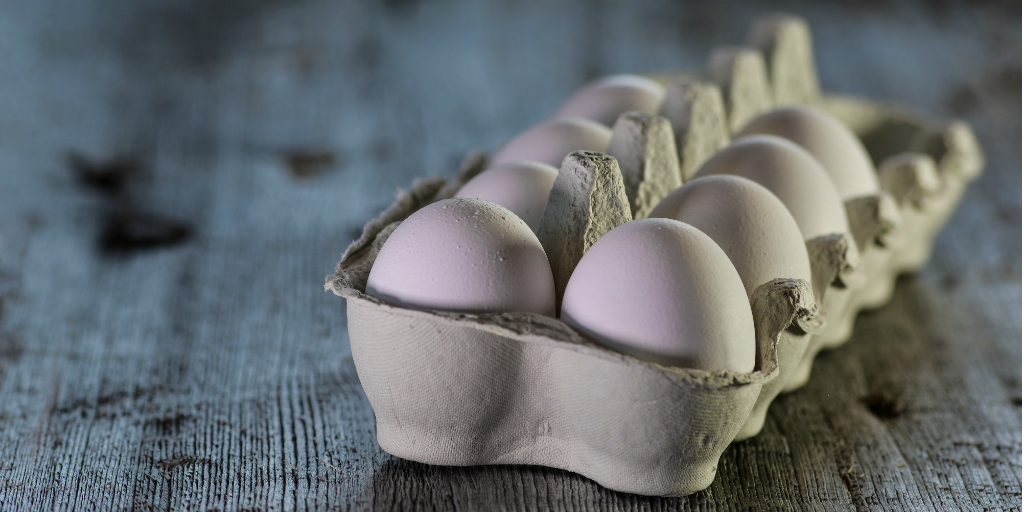
Original photo: “Eggs Raw Dairy Closeup” by monicore is licenced under CC BY-SA 2.0
9 April – Try alternative sanitary items. Disposable paper and plastic pads as well as cotton tampons are considered contaminated items and cannot be recycled.
Reusable cloth pads, menstrual cups or sponges are the more environmentally sound option.
10 April – Eco-friendly takeaways. Are you getting pizza takeaways? Did you know that cardboard, paper, and napkins that are contaminated with food are not recyclable?
The next time you are buying pizza, speak to the manager of the restaurant about getting biodegradable boxes that can be used to make compost. If it’s a franchise, be sure to use social media to reach out to them and ask for compostable materials.
Water conservation week
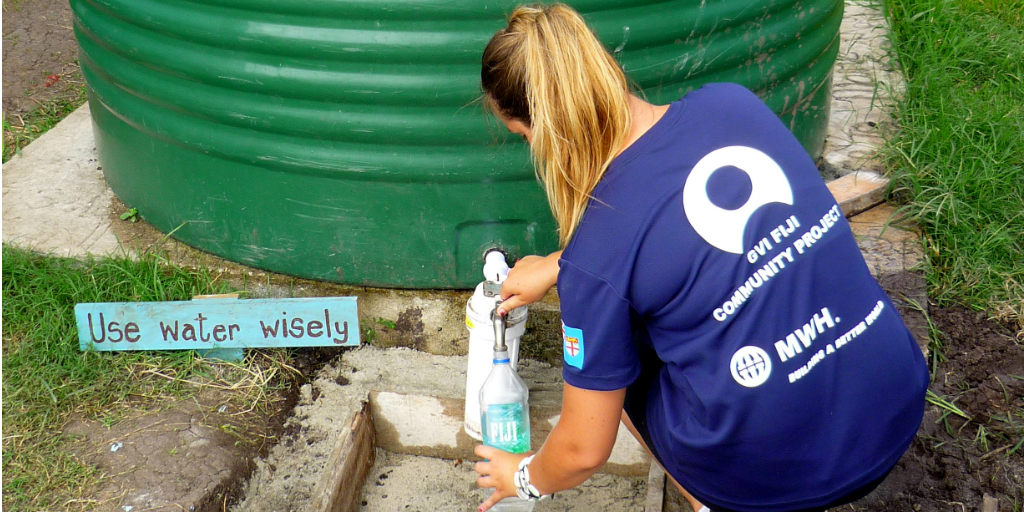
Clean water is a precious resource. Treating contaminated water and removing salt from ocean water are processes that require a lot of energy and therefore natural resources.
By lowering your own use of water, you can prevent how much water is contaminated, which will put less strain on the environment. If you would like to learn about alternative means of attaining water security, why not join our water harvesting project in Fiji?
11 April – Use waterless washes. Does your bicycle, motorbike or car need a wash? Take it to a local waterless wash business or buy your own waterless washing liquid.
12 April – Only wash full loads of laundry. Yes, you now have permission to let your laundry pile up.
If you are washing by yourself make sure to only put the machine on for a full load. If you are washing at a laundromat, partner up with a friend to create a full load.
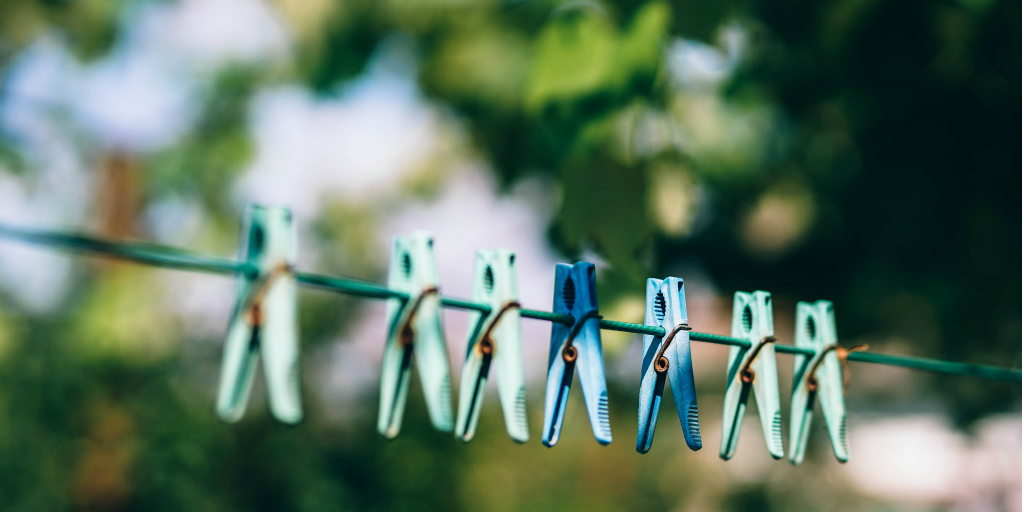
Original photo: “Pegs clothes pegs drying” by igorovsyannykov is licenced under CC BY-SA 2.0
13 April – Shower instead of bathing. Showers use less water than bathing.
If you cut the average shower time in half, you can save even more water. A good tip is to put on a fast-paced song to shower to or to make a game of it if you live with your family, roommates, or other students.
14 April – Close the tap. When washing your hands and brushing your teeth, never keep the water running. The same goes for washing dishes.
Further reading: Seven ways you can help save the world’s oceans
15 April – Minimise flushing. Flushing toilets is the second most common household use of drinkable water.
There are a few practices that can prevent the unnecessary wastage of water in this way. First, never use the toilet as a rubbish bin.
The second is to use water recycled from buckets in the shower, basin and kitchen sink to flush. The third is to only use the flush function for solid waste.
A more long-term solution is to install a compost toilet. You can also help raise awareness around why all new building developments should have compost rather than flush toilets installed.
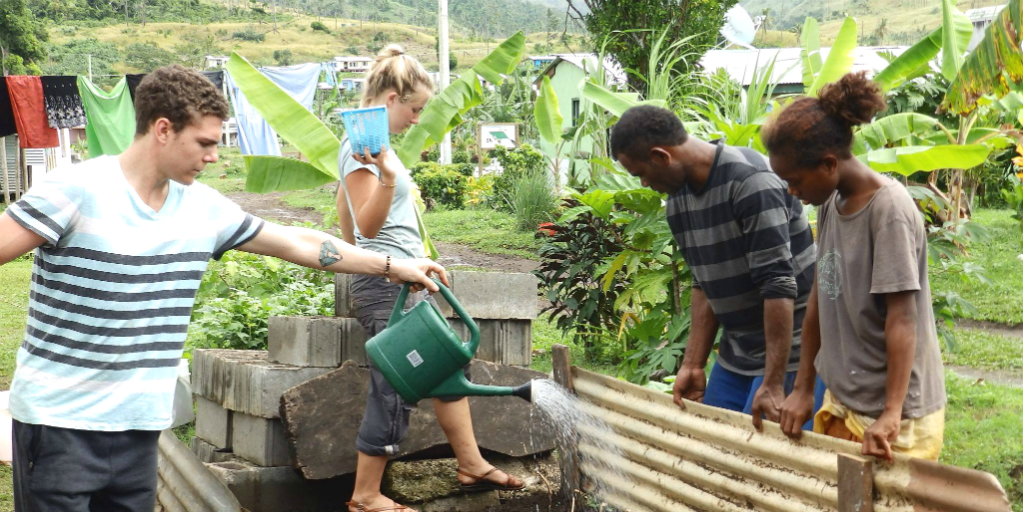
16 April – Minimise water used for gardening. If you have a garden, start using water from the shower, basins and washing machines to water it. But you should first make sure that the cleaning agents you use are not harmful to the environment.
If your parents, school or business has a garden, ask them to consider installing an irrigation system that relies on grey water. You could also suggest looking at gradually replacing a garden that requires a lot of water with one that is endemic to the region.
Plants that are native to a region are adapted to the climate, which means they will look good no matter the time of year.
17 April – Fix the leaks. Ask your parents, landlord, or building manager to check the building for leaks and get some water-efficient faucets and showerheads. If funding is an issue, consider starting a fundraiser.
Food and biodiversity week
Many everyday items that can be found in stores and households are harmful to both humans and the environment. As a result, many species are under threat of extinction and toxin-related diseases are common.
In addition, millions of tons of food, which require a substantial amount of natural resources to produce, are wasted every year. By minimising your food waste, you can help protect both wildlife and other people from harm.
You can also participate in environmental education initiatives on our marine or land conservation projects around the world. Alternatively, you could help to build community gardens as part of our community development projects in Fiji.
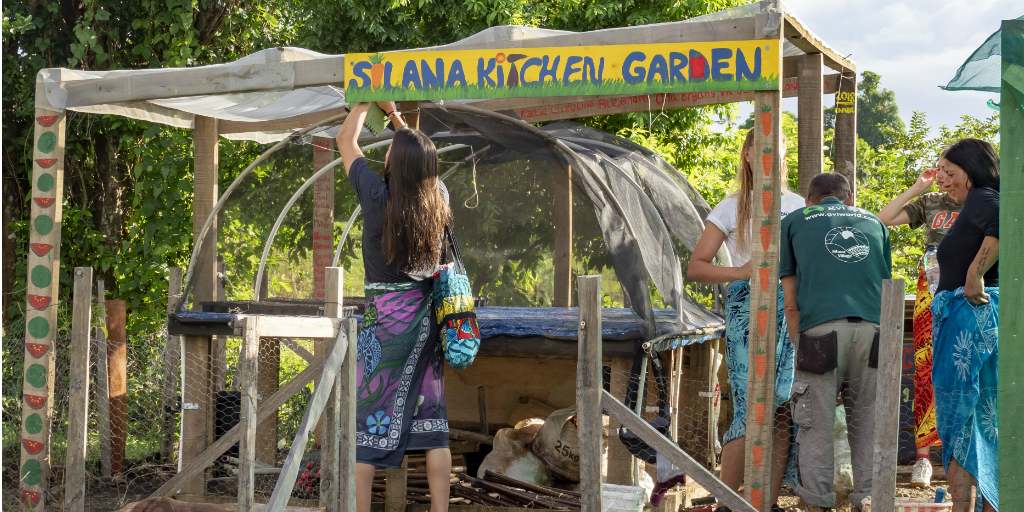
18 April – Clear out your cosmetic and toiletry bag. Check all your cosmetics and toiletries for harmful chemicals.
Ingredients to look out for include petroleum in lip balms, sulfates in soaps and shampoos, parabens in sunscreen, triclosan in deodorants, and synthetic fragrances altogether. Petroleum contains sulfur and nitrogen compounds which react with the environment, creating toxins.
No longer invest in wet wipes. A 2017 statistic by Water UK found that wet wipes make up 90% of the cause of sewage blockages.
19 April – Clear out your cleaning cupboard. Many detergents contain phosphates that are harmful to the environment.
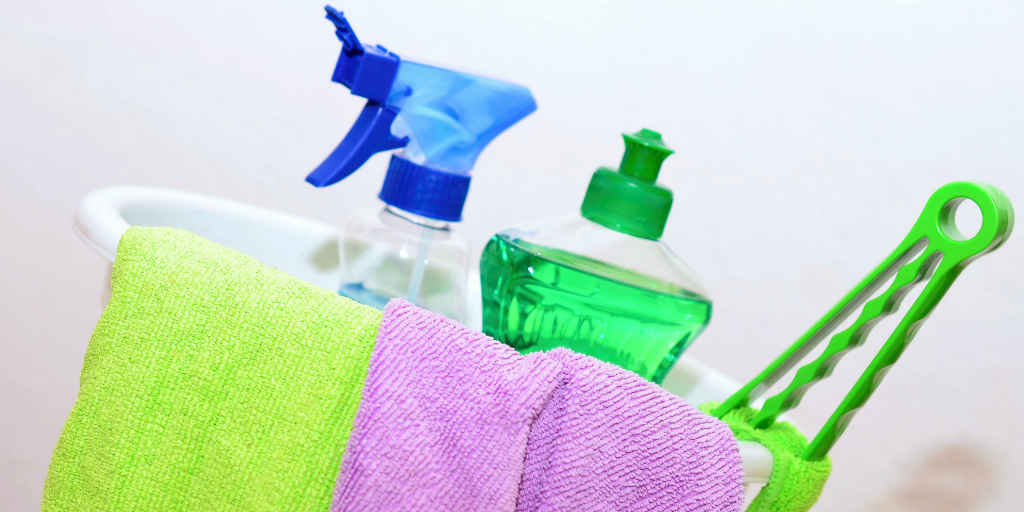
Original photo: “Clean Rag” by congerdesign is licenced under CC BY-SA 2.0
Luckily there are many effective “green” cleaning options on the market that you can use instead.
Caustic products like drain cleaners can cause severe burns if it gets on your skin, due to its high toxicity. If it can damage your skin so easily, imagine what it can do when disposed of into the environment? Call a plumber to remove the block manually.
Another common item you should completely avoid is chlorine bleach because of its toxic effects on people, such as damage to your nasal passages by inhaling the potent chemical. Vinegar, lemon juice, and baking soda are great alternatives.
Further reading: A global look at food waste and how to make a change
20 April – Check for the sustainable palm oil label. The palm oil industry is responsible for clearing many hectares of rainforest.
Many common products from chocolate and ice cream, to detergents and shampoos, contain palm oil. Make sure that any product you use that contains palm oil has an RSPO or Green Palm label before purchasing.
21 April – Buy organic products. You might have debated whether the price of organic produce is “worth it” for your health.
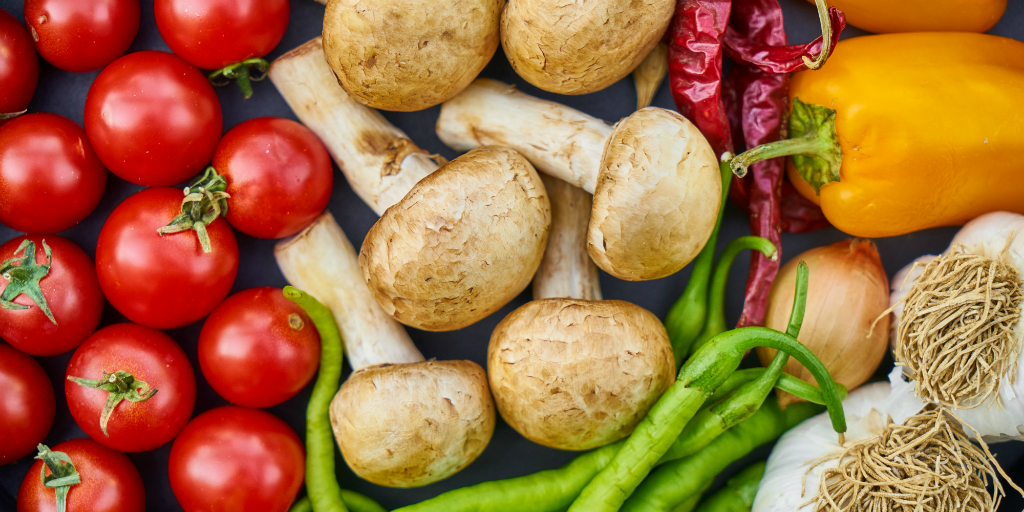
Original photo: “Mushrooms tomato plate” by Engin_Akyurt is licenced under CC BY-SA 2.0
The reality is that if more consumers like you demanded organic products, manufacturers would be forced to produce more items without the use of pesticides. Pesticides protect crops from predators like insects, but some critics state that the residue left on crops may also affect human health and the environment.
The extra amount you pay for organic produce shows that you think about environmental considerations when making purchasing decisions.
22 April – Only buy what you need. Take stock of your eating habits. Which items do you purchase often that spoil regularly?
When making a meal, do you often have extra food that gets thrown away? Make a meal plan, and buy only what you need. If you have food left over, from a meal or takeaway, consider donating it, rather than disposing of it.
You can also start a composting bin. Band together with your roommates, neighbours or fellow students to get a composting bin and start putting food scraps into the bin.
Another tip is to speak to your grocer. Many products are actually still safe to eat after their expiry date.
While your grocer might not be comfortable selling the food to customers they might donate it to organisations like shelters that need food. Find out if your favorite grocers donate their expired items and if not, encourage the manager to do so.
Grow the movement weekend
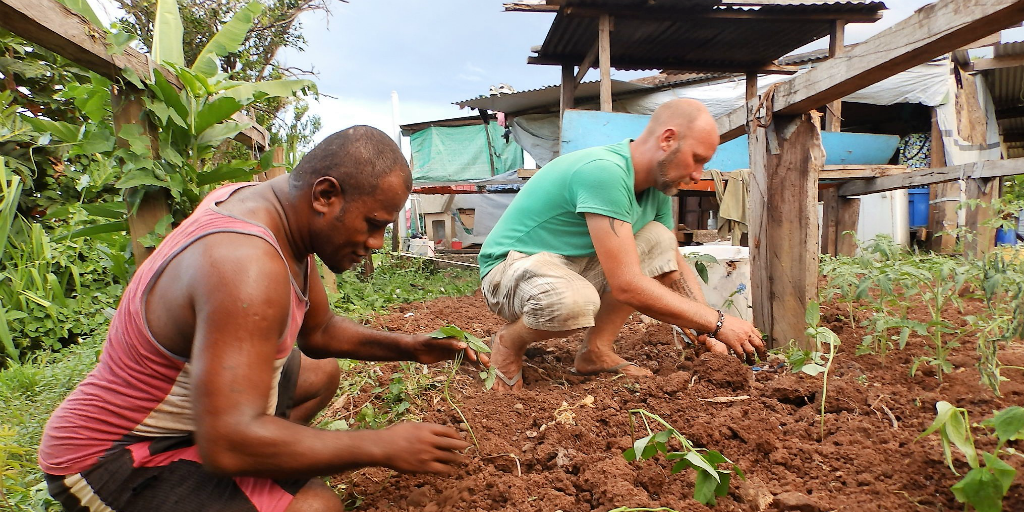
While you will have made massive strides in the past 26 days to reduce your own impact on the environment, we need more people like you to create change on a global scale. In these final two days you can expand your range of impact.
23 April – Take stock. Which of the changes did you find most difficult and most easy to implement? What were you most surprised by throughout the journey?
Make a list of new goals for the next month, based on what you were able to accomplish and what you haven’t been able to get to yet. Share your successes and new knowledge with others using either Instagram or Facebook.
24 April – Join a specific movement. Joining an organisation that works on a cause you are most passionate about can help you grow your skill set and help you to make an impact.
You can also fundraise locally to support international organisations like the GVI Trust that work to support conservation initiatives.
Join one of our marine or terrestrial habitat conservation programs in one of 21 locations around the world.
